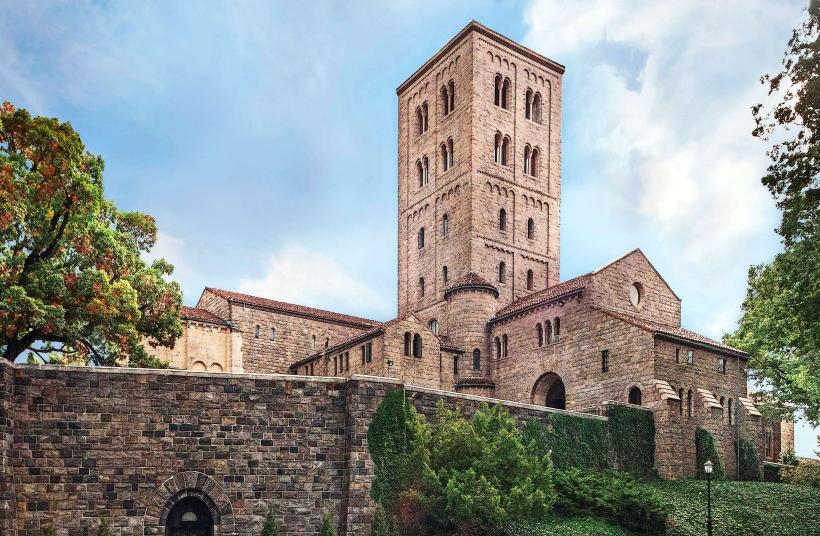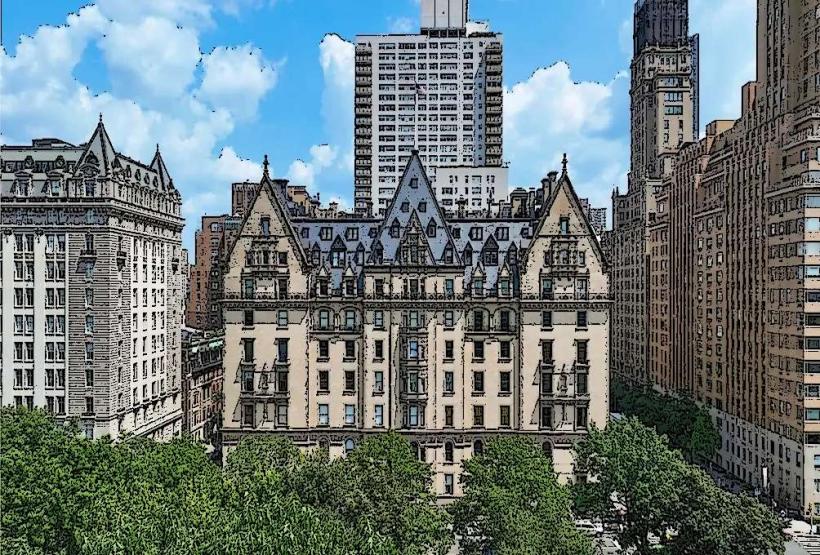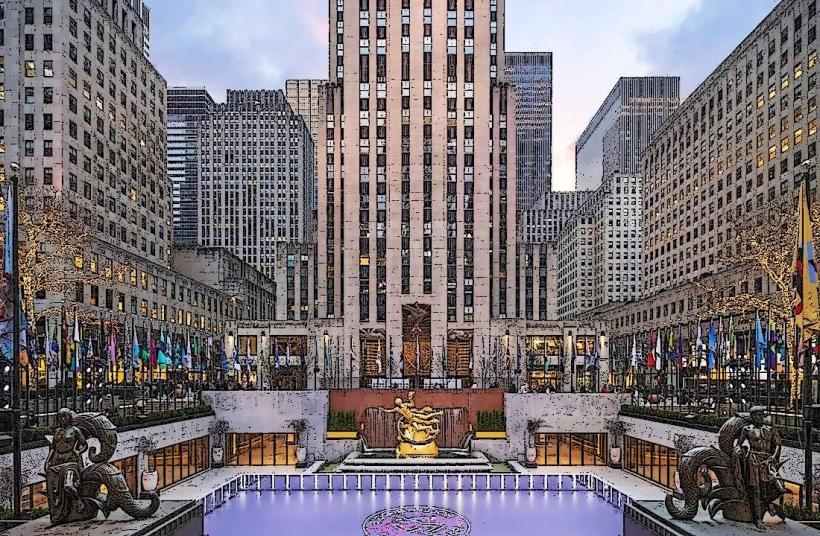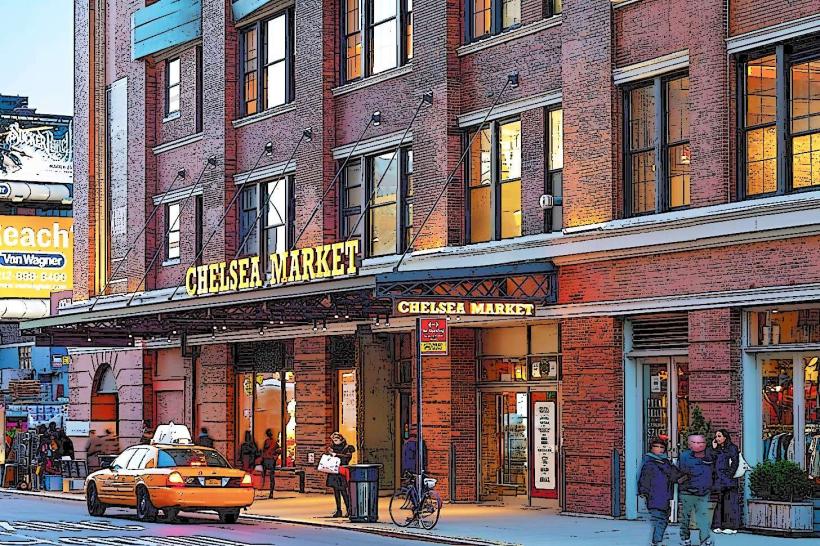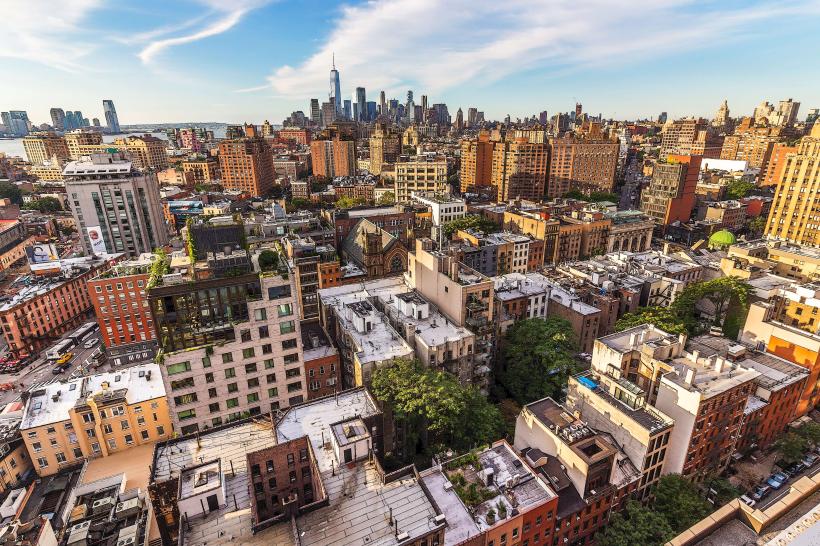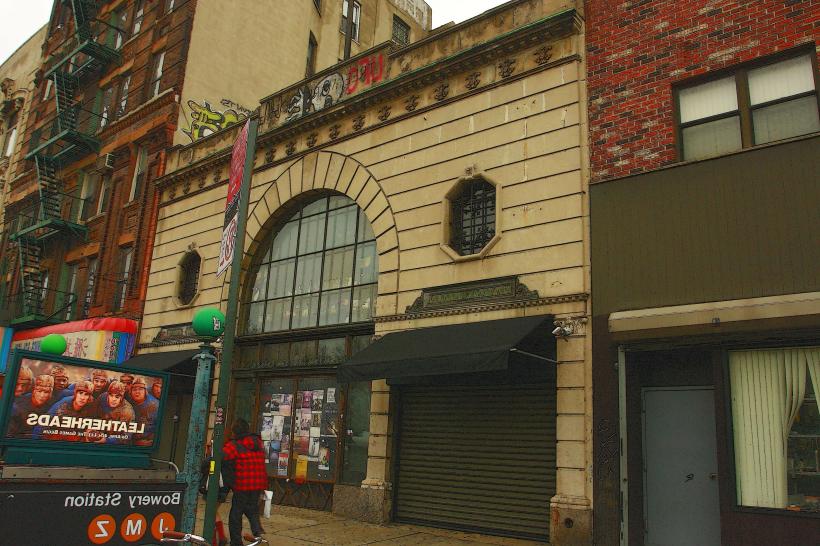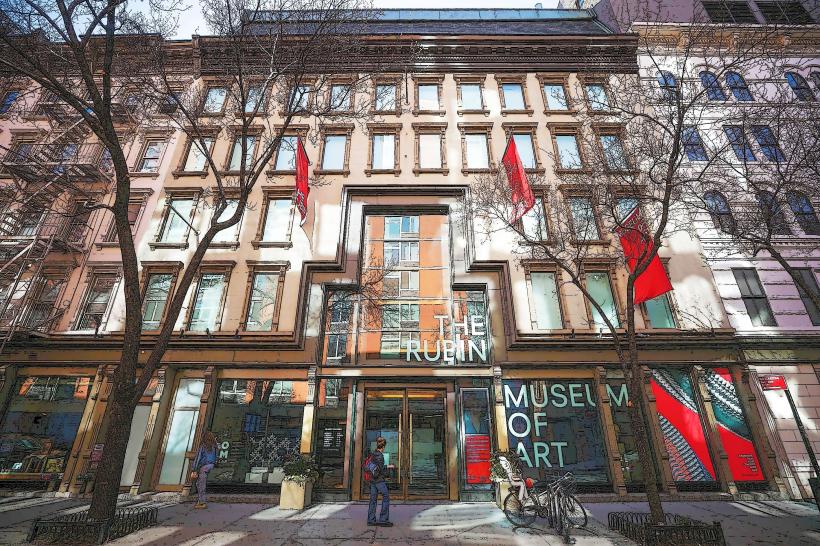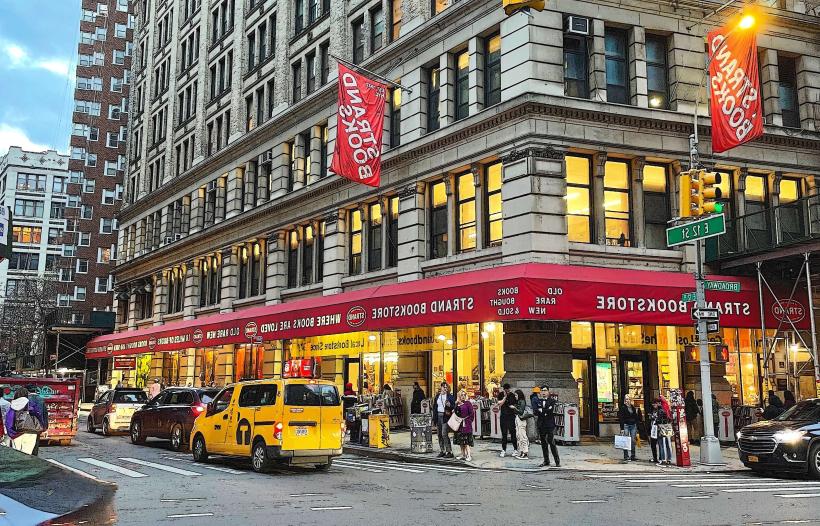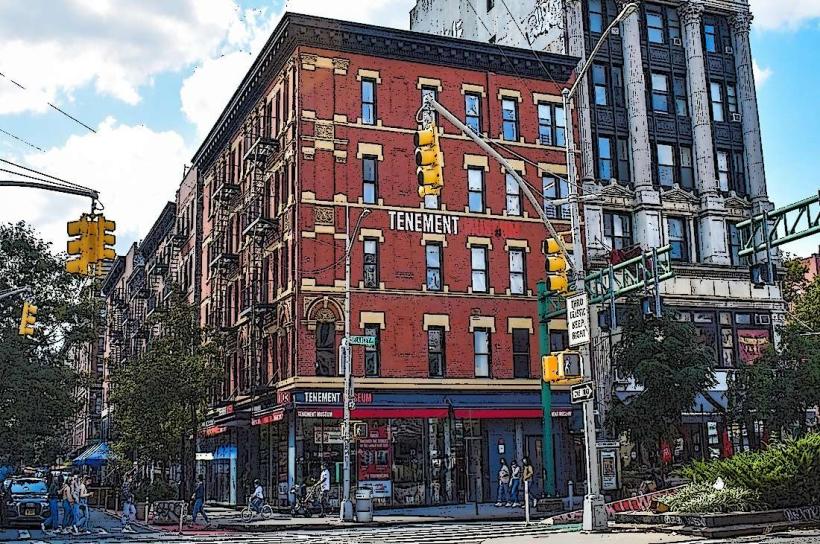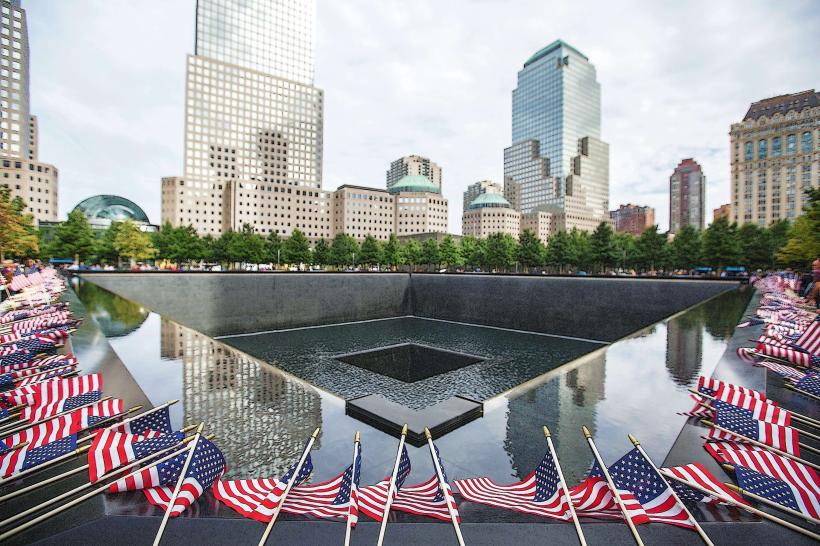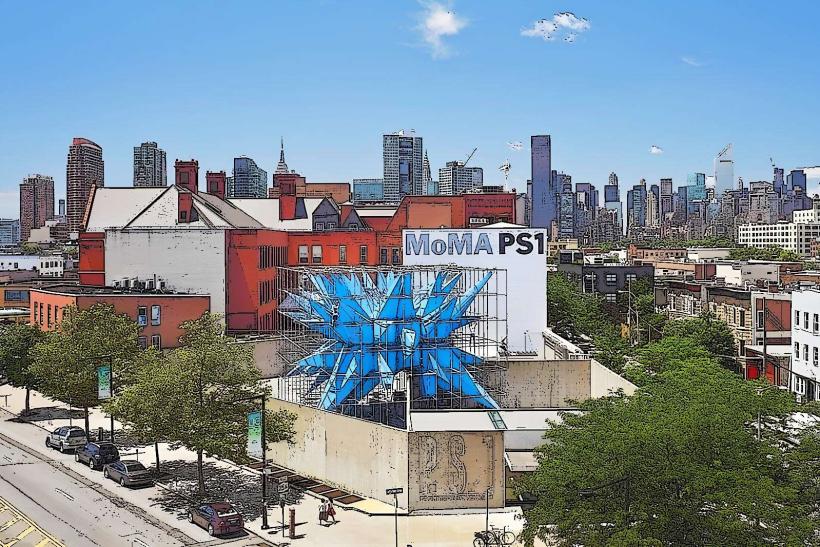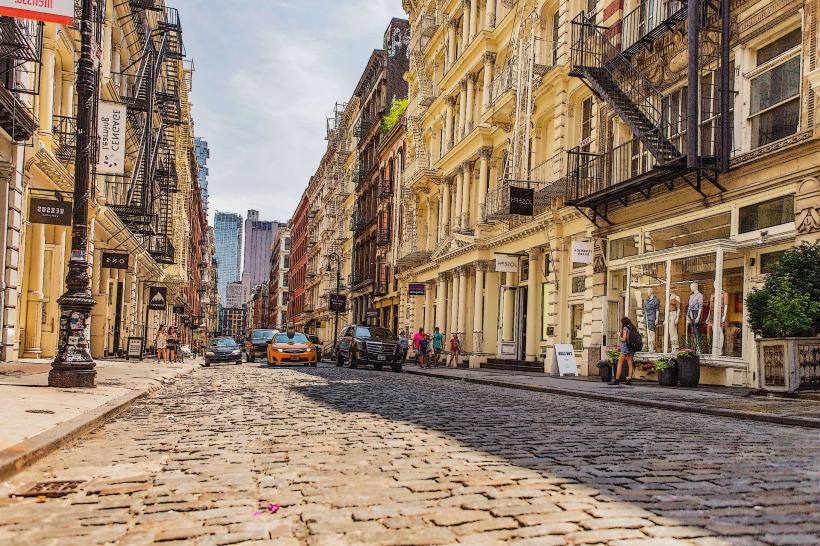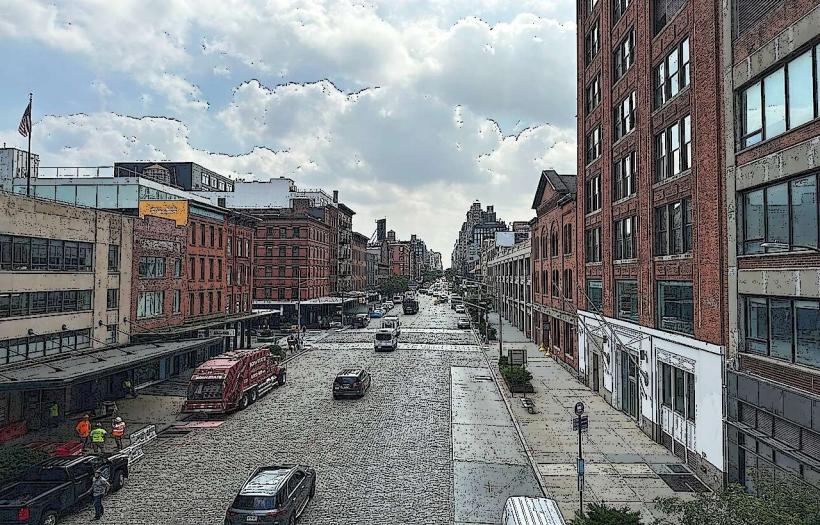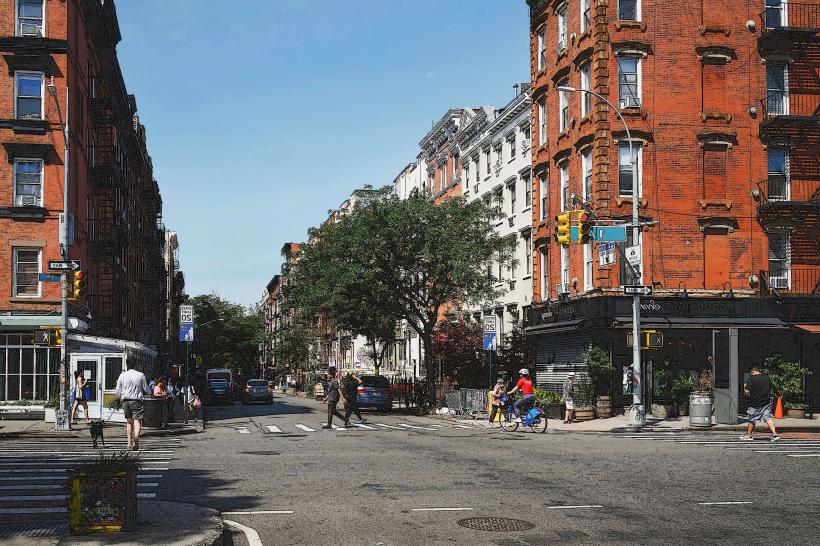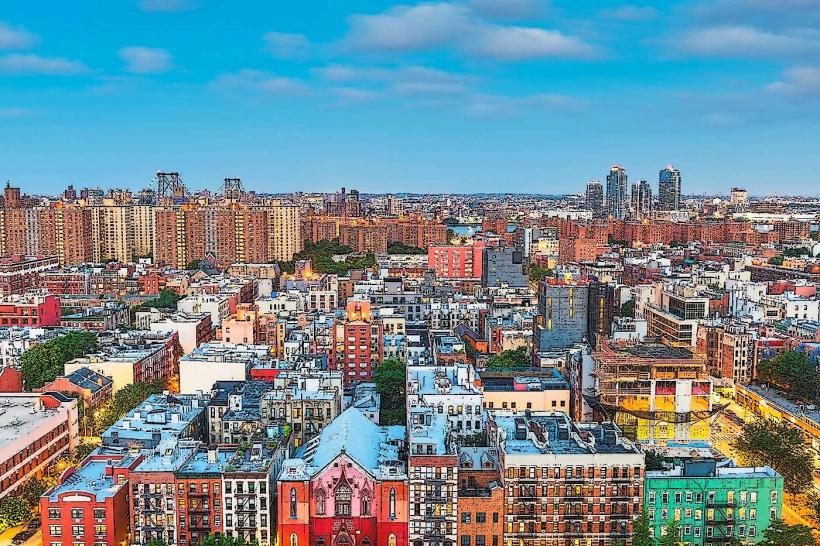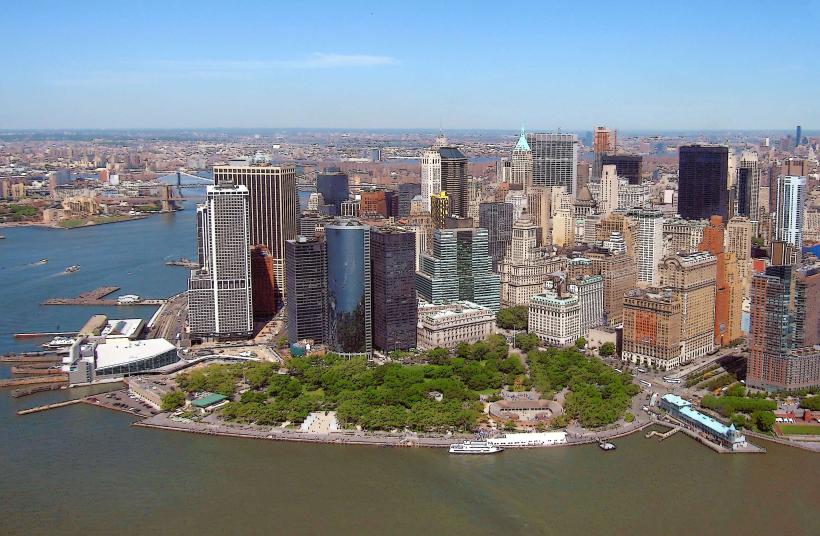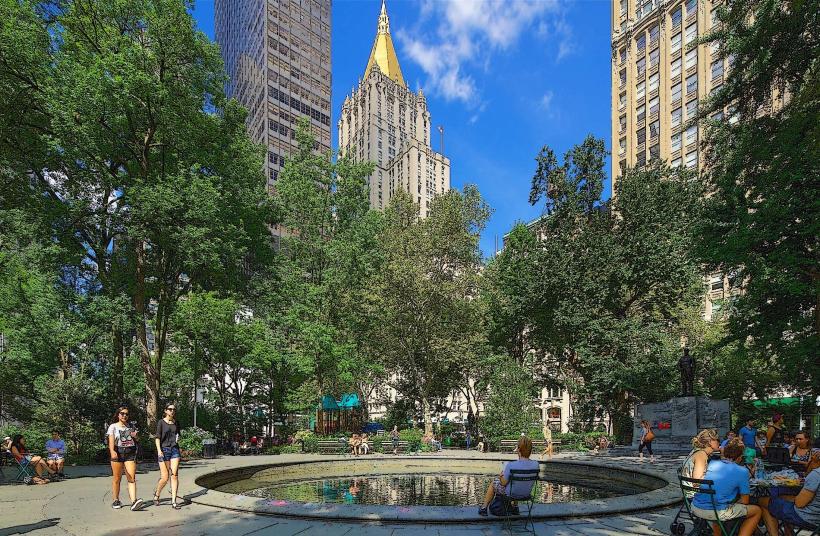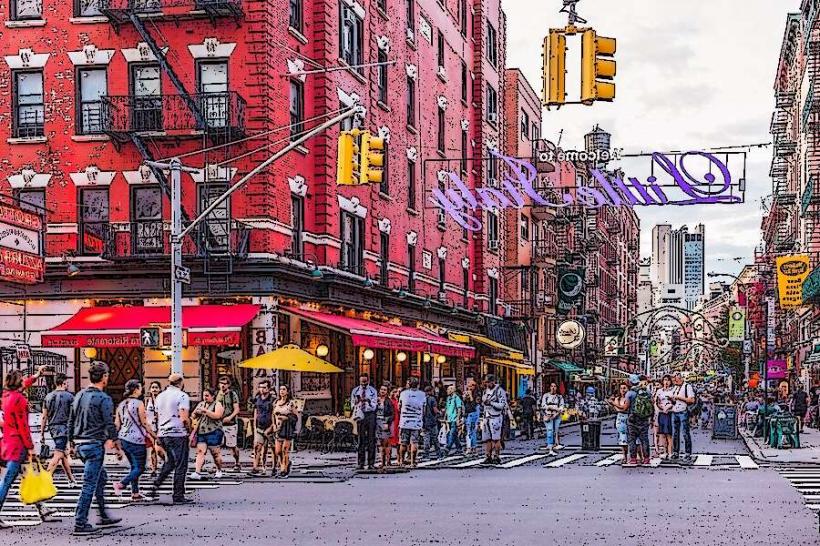Information
City: ManhattanCountry: USA New York
Continent: North America
Manhattan, USA New York, North America
Manhattan, one of the five boroughs of New York City, is often considered the heart of the city due to its dense concentration of financial, cultural, and commercial institutions. It is the most populous and economically significant borough, and it's also the most famous worldwide. The borough is a global center for finance, media, technology, fashion, and the arts.
Geography and Layout
Manhattan is an island that stretches approximately 13.4 miles (21.5 km) in length and 2.3 miles (3.7 km) at its widest point. It is bordered by the Hudson River to the west, the East River to the east, and the Harlem River to the north. The island is divided into several distinct neighborhoods and districts, each with its own character and charm. Some of the most notable areas include Midtown, the Financial District, the Upper East Side, the Upper West Side, SoHo, Tribeca, Greenwich Village, and Harlem.
Manhattan is characterized by a grid system, with streets running north-south and avenues running east-west. This layout, established in the early 19th century, makes it relatively easy to navigate.
Key Areas and Neighborhoods
Midtown Manhattan
Midtown is the commercial heart of Manhattan, filled with skyscrapers, office buildings, shopping centers, and entertainment venues. Some of the city's most famous landmarks are located here, including:
Times Square: Known for its bright lights, theaters, and bustling atmosphere.
Broadway: The world-renowned theater district.
Empire State Building: An iconic Art Deco skyscraper offering panoramic views from its observation deck.
Rockefeller Center: Home to NBC studios and the famous ice-skating rink.
Grand Central Terminal: A historic train station known for its architectural beauty.
Bryant Park: A popular public space surrounded by skyscrapers, offering outdoor seating and events.
Lower Manhattan
Lower Manhattan is home to the city's financial core, particularly the Wall Street district, as well as historical sites and the vibrant neighborhoods of Chinatown, SoHo, and the Financial District. Notable landmarks include:
Wall Street: The financial heart of the country, with landmarks like the New York Stock Exchange and Federal Hall.
One World Trade Center: The tallest building in the Western Hemisphere and part of the World Trade Center complex.
The 9/11 Memorial and Museum: A tribute to the victims of the September 11 attacks.
Battery Park: A waterfront park offering views of the Statue of Liberty and Ellis Island.
Chinatown: A bustling area known for its markets, restaurants, and cultural influence.
SoHo: A trendy neighborhood famous for art galleries, boutiques, and cast-iron architecture.
Upper East Side
The Upper East Side is known for its luxury apartments, elegant townhouses, and proximity to Central Park. This neighborhood is considered one of the wealthiest and most prestigious areas in Manhattan. It is also home to:
Central Park: The city's largest green space, offering walking paths, lakes, and cultural institutions.
The Metropolitan Museum of Art: One of the largest and most prestigious art museums in the world, located on the eastern edge of Central Park.
The Guggenheim Museum: A modern art museum designed by Frank Lloyd Wright, famous for its spiral architecture.
Upper West Side
The Upper West Side is known for its residential charm, tree-lined streets, and family-friendly atmosphere. It’s home to:
Columbia University: One of the most prestigious universities in the world, located on the northern edge of the neighborhood.
The American Museum of Natural History: A world-renowned museum with extensive exhibits on science, nature, and history.
Lincoln Center for the Performing Arts: A cultural hub for music, opera, and dance.
Greenwich Village
Known for its bohemian culture, Greenwich Village has been the heart of New York’s artistic and literary movements. It features:
Washington Square Park: A central gathering place, famous for its arch and lively atmosphere.
Bleeker Street: A street known for its live music venues, cafes, and theaters.
The Stonewall Inn: A historic site for LGBTQ+ rights and the birthplace of the modern LGBTQ+ rights movement.
Harlem
Harlem is a historic neighborhood known for its African American culture and contributions to jazz, art, and civil rights. Key landmarks include:
The Apollo Theater: A legendary venue that helped launch the careers of many famous musicians.
The Studio Museum: An institution dedicated to contemporary African American art.
Sylvia’s: A famous soul food restaurant in the heart of Harlem.
Parks and Green Spaces
Manhattan is home to several major parks and green spaces that offer a break from the urban environment. The most famous of these is Central Park, which spans 843 acres and provides recreational opportunities, cultural venues, and natural beauty. Other notable parks include:
Riverside Park: Located along the Hudson River, it offers walking paths, bike lanes, and open spaces.
Washington Square Park: Known for its iconic arch and vibrant social scene.
Bryant Park: A small but popular park offering free events and outdoor seating.
High Line: An elevated park built on an old rail line in the Meatpacking District, offering greenery and art installations.
Cultural Institutions and Museums
Manhattan is home to world-class cultural institutions, including:
The Metropolitan Museum of Art: One of the largest and most prestigious art museums globally, with vast collections spanning centuries and cultures.
The Museum of Modern Art (MoMA): A leading museum of modern art, home to iconic works by Picasso, Van Gogh, and others.
The Guggenheim Museum: A modern art museum housed in a uniquely designed Frank Lloyd Wright building.
The American Museum of Natural History: A comprehensive museum featuring exhibits on natural history, science, and anthropology.
The Whitney Museum of American Art: Focuses on American art from the 20th and 21st centuries.
The Rubin Museum of Art: Specializes in Himalayan and Indian art.
Entertainment and Shopping
Manhattan offers numerous entertainment options, from Broadway theaters in Times Square to upscale shopping on Fifth Avenue. The neighborhood of SoHo is famous for its trendy boutiques, and Madison Avenue is lined with luxury shops. For those seeking a more local experience, neighborhoods like the Lower East Side and Greenwich Village offer eclectic and independent shops, cafes, and art galleries.
Transport and Accessibility
Manhattan is the transportation hub of New York City, with extensive options for getting around. The New York City Subway is one of the largest and most comprehensive transit systems in the world, covering all areas of Manhattan. The Metropolitan Transportation Authority (MTA) operates buses and the subway, providing easy access to neighborhoods across the city. Additionally, taxis, ride-sharing services, and ferries help people navigate the busy streets of Manhattan.
Economic Importance
Manhattan is the economic powerhouse of New York City and one of the leading financial centers globally. It hosts Wall Street and the New York Stock Exchange (NYSE), as well as the headquarters of major global companies in various sectors such as finance, media, and technology. Midtown Manhattan is home to numerous corporate offices, while Silicon Alley in the Flatiron District has emerged as a hub for tech startups.
Real Estate and Housing
Real estate in Manhattan is notoriously expensive. The island is known for its iconic skyline, dominated by high-rise apartment buildings and luxury penthouses. However, despite high demand, there are many diverse living options available, from historic brownstones in neighborhoods like the Upper West Side and Brooklyn Heights to ultra-modern condos in areas like Hudson Yards.
Conclusion
Manhattan is a dynamic, fast-paced, and influential area, home to a diverse population, iconic landmarks, and significant economic and cultural institutions. Its mix of business, arts, history, and green spaces makes it a unique and exciting part of New York City.







